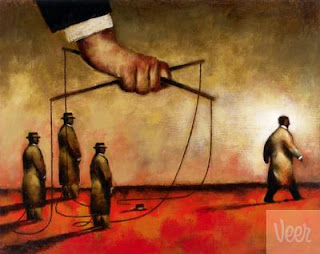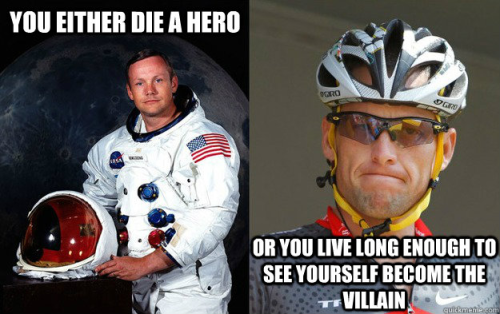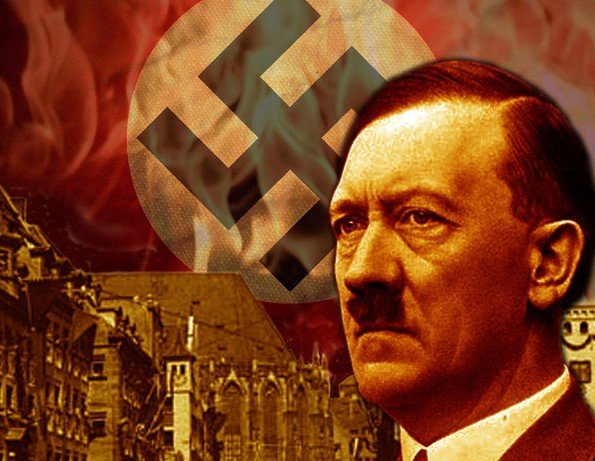Love is something which most of us have not experienced and even some of
us deny its existence. But the fact is something different. We all experience this
heavenly feeling when we see two people whom we consider next to God, our
parents. Here is a small story which will help us, especially youngsters, to
understand Love, which is Life.
Rakesh Gokhale, 26 years old, used to live in Mumbai along with his mother and
grandmother. He lost his father when he was 11 years old. He was a teacher in a
school and managed his middle class small maharashtrian
family well. As he was an earning guy now, planning of his marriage was going
on. Like everybody, he also had some expectations about his life partner and he
was very excited about this.
One Sunday, while he was sitting in his room, his mother and grandmother
came to him and told him some things. Listening to them he was shocked and
moved out of the house angrily. Once Gokhale family used to reside in a small
town near Mumbai and Mr. Shinde, their neighbour, was a very good friend of
Rakesh’s father. He helped Rakesh’s family after his father’s death. The
present situation was that, Mr. Shinde, a very simple and small town old man,
gently asked Gokhale family to make Rakesh his son-in-law by accepting his
daughter Gauri as their daughter-in- law.
When Rakesh’s mother told him about all this he was angry because he
thought just because Mr. Shinde has helped them a lot he can’t marry his
daughter, whom he hasn’t seen since 15 years. He went out and sat in a peaceful
place for a while. His mind was full of his mother’s words about his father’s
death, Mr. Shinde’s gratitude, Gauri and all. Then he thought if Mr. Shinde is
a very good man, Gauri must be a nice girl and keeping in mind that Mr. Shinde
has asked something from them for the first time, he decided to marry Gauri. He
went back to his home and told his decision to his mother and she started
crying, Rakesh thought she was crying out of happiness but her tears wanted to
say something which Rakesh wouldn’t understand now.
Gokhale family planned to meet Mr. Shinde and family on Tuesday and
everybody was excited that two very close families are going to be a single
family now. Monday night Rakesh was informed that there is a very important
work in school so he won’t be able to go and hence only his mother and
grandmother went there. When they came back Rakesh asked his mother, “how is
she?”, in an exciting way. His mother replied she is beautiful and she started
crying. Rakesh was happy listening to this and he again thought that she was crying
out of happiness and was unable to understand the voice of her tears.
The date of marriage was fixed and everyone was happy. There were small
and nice arrangements by both families according to their financial conditions.
And at last the day of marriage came and Gokhale family reached the town with
some relatives and friends. Rakesh was very excited to see beautiful Gauri and
as soon as he entered the marriage hall he saw the bride in a red saree and he
was shocked after seeing her as Gauri was a very fat girl having weight about
double of Rakesh. Rakesh was very upset after this and was silent during the
whole marriage. When Gokhale family came back to Mumbai along with Gauri,
Rakesh went to his mother and said you people played with my life by making me
marry with this fat girl and he left the room. His mother was crying and her
tears were saying same things as they were saying last two times to her that
she has ruined two lives.
Rakesh went to his room, where Gauri was sitting and told her that he is
feeling cheated by everyone and he doesn’t like her and this marriage at all
and left. Now in the room there was a girl, Gauri, sitting silently and
describing more about her, she was beautiful with big deep eyes having tears in
them, a lost lovely smile and a very pure heart.
The house was silent at that moment, there were three hearts one filled
with hatred, one with a guilt of destroying two lives but the third heart had
something different in it, and it had Love for Rakesh. Being an Indian daughter
having all good qualities and learning, Gauri had respect and love for Rakesh
and this love gave her the power to bring the other hearts at their normal.
Next morning when Rakesh woke up early and was departing for school he
saw Gauri worshiping God. As he started moving outside a very sweet voice
entered in his ears, it was Gauri’s voice. She had prepared lunch for Rakesh
and asked him to take the same along with him. Rakesh’s mother entered and told
Gauri that Rakesh always had his lunch outside you don’t need to wake up so
early for preparing lunch. She replied that she has a habit of waking early and
preparing food for his father. Rakesh wasn’t interested in the conversation so
he started leaving and took the lunch box along with him as insulting the food
wasn’t in his ethics. This brought that lovely smile on Gauri’s face back.
Although Rakesh missed this but his mother saw this smile and blessed her and
the guilt in her heart started decreasing.
When Rakesh opened his lunchbox, suddenly he remembered Gauri’s sentence
she said in the morning with her lovely voice but he himself ignored this
feeling but one thing was sure that her voice was somewhere able to find the
way to Rakesh’s heart. Then he had the food along with other people and
everybody complimented him that he has got a very good wife.
Days were passing by and Rakesh was still ignoring Gauri and had hatred
for her. But Gauri’s power of love of was still there and kept believing that
one day that hatred will be replaced by love. One day when Rakesh opened his
lunchbox he saw his favorite Gajar ka
halwa in it and it was delicious and for the first time Rakesh had a smile
on his face. When he returned back home for the first time he had a
conversation with Gauri and he told her that lunch was good and she said with
her eyes down and blushing that it is her birthday today. Both were silent for
few seconds, Rakesh wanted to wish her but he remained silent. Gauri understood
his silence and realized that her power of love is doing something. Rakesh’s
mother was watching all this and she smiled. The guilt was almost gone.
Next day, Rakesh received a letter from Mr. Shinde. He cried after reading
his letter. Is was something like this,
"Dear Rakesh,
Bless you son, you
are a very good human being. You accepted my daughter at the time when nobody
was going to marry her. I got a letter from her. She said she is very happy
with you all. Your mother is a very understanding lady, she said. And she told
me about you that you are very caring towards her. She also told me about the
green saree you gave her on her birthday.
I feel very lucky to have you as my son-in-law.
Thanks a lot, Rakesh.
Sushil Shinde"
After reading this Rakesh’s hatred was gone and now he was feeling
guilty for his behaviour towards Gauri. And he realised why his mother had said
that Gauri is beautiful. Beauty comes from person’s heart, he understood this
fact and decided to say sorry to her.
Next day when Gauri woke up she saw something in front of her. A green
saree and a piece of paper written sorry on it was kept near her. She smiled
and a tear was coming out of her eye. Rakesh entered the room and said, “I know
I am the reason behind your tears” suddenly Gauri stopped him and said, “Rakesh
when your mother came to our house when you were involved in some school work
she told me about you that how you have earned a respectable position in
society, I fell in love with you and this love gave me the power to remove the
hatred from your heart.” Rakesh said “I had learnt something that Love is very
happening and powerful at the same time. Thanks for being my life partner and
one more thing, you are very beautiful.”













